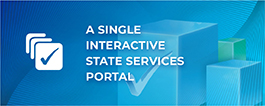
The Government portal of the
Republic of Uzbekistan
Information on the project "Development of rural infrastructure" with the assistance of the World Bank and the Asian Infrastructure Investment Bank (AIIB)
2020-11-24 | Economics
The Rural Infrastructure Development Project will be implemented by a Unit under the Ministry of Economic Development and Poverty Reduction of the Republic of Uzbekistan.
Project financing amounts toUS$183.6 million, of which, US$100 million from a World Bank IDA credit, US$82 million from an Asian Infrastructure Investment Bank credit, and US$1.6 million from the Government of Uzbekistan.
The project will be implemented from 2020 to 2024 in five regions of the Republic of Uzbekistan: Jizzakh, Syrdarya, Ferghana, Namangan, and Andijan, covering 21 districts and more than 300 villages in these regions.
The Project’s development objectives are to: (i) improve the quality of basic infrastructure, and (ii) strengthen participatory local governance processes in selected qishloqs.
The project is based on five core principles:
1. Community-driven decision-making. The Project will finance subprojects identified and prioritized by communities through participatory and inclusive social analysis that identifies communities’ development needs and presents them in the form of a Qishloq Development Plan accessible to all stakeholders.
2. Capacity building for good local governance practices. The Project will support the establishment of inclusive Mahalla Development Units that represent and give voice to all residents, including men and women, youth, the poor, and the vulnerable. It will also build the capacity of members of Mahalla Development Units and Mahalla Citizens Assemblies (both men and women) in a variety of areas, including holding participatory and inclusive meetings and decision-making processes, and managing the day-to-day development affairs of communities. In addition, the Project will help to link Mahalla Development Units to other governmental and nongovernmental agencies/organizations to improve access to services and resources.
3. Gender equitable development. The Project will focus on closing gender gaps in (i) voice and participation in village-level decision making, by ensuring that 50% of members of Mahalla Development Units are women, and through community outreach to ensure that women (including young women) are able to participate in project planning and decision-making meetings; and(ii) access to services, through subprojects that address the needs of women.
4. Transparency and accountability. The Project will support various measures to ensure transparency and accountability during implementation, including: outreach and orientation meetings at the national, regional, district, and village levels; publishing information on project implementation on its website; fostering community participatory monitoring of subproject procurement and implementation; using social audits to measure community perceptions of the quality of implementation; and establishing a grievance redress mechanism accessible to all stakeholders.
5. Social and environmental sustainability. In line with the objective of the Government of Uzbekistan of raising living standards in rural areas, the Project will finance investments and activities that yield positive socioeconomic benefits for rural residents. Activities on a negative list will not be supported; these include activities that involve permanent physical displacement, require forcible evictions, negatively impact residents’ incomes or livelihoods, contribute to child or forced labor, or result in environmental impacts that are large scale and irreversible. The Project will support awareness-raising efforts for local officials and communities on national laws and regulations pertaining to social and environmental safeguards, and World Bank environmental and social standards, policies and due process.
The Project will finance demand-driven investments in basic infrastructure and services at the local level, and local-governance capacity support.
Eligible investments in basic and climate-resilient infrastructure and services include: (i) rehabilitation of existing rural drinking water supplies and sanitation systems to expand access, through innovative alternative models, to rural drinking water and sanitation services; (ii) retrofitting of public buildings for energy efficiency; (iii) rehabilitation of social infrastructure; (iv) rehabilitation of tertiary roads, walkways, and footpaths; (v) road drainage and strengthening offlood resilience of rural roads; (vi) bridge rehabilitation and construction (up to 10 meters long); (vii) upgrading of street lighting; (viii) improvements to public spaces; (ix) solid-waste management systems; (x) small-scale construction of public facilities; (xi) installation of antennas to provide wireless internet services; (xii) construction and rehabilitation of bus terminals and stops; and (xiii) energy supply activities.
Communications and village outreach, citizen engagement, and local-governance capacity building activities will support Project implementation.Qishloq facilitators and engineers will provide technical assistance, training, and capacity-building to Mahalla Development Units and District Project Committees.
The Project is expected to achieve the following key results:
· Implement at least 300 demand-driven subprojectsin basic infrastructure and services in 300 rural villages
· Improve access to quality infrastructure and services for over 300,000 rural residents
· Conduct approximately 918 social audits to ensure inclusive and transparent Project decisions and the accountable use of subproject funds
· Strengthen the capacity of local governments (Khokimiyats) to engage communities in inclusive development processes
· Link Mahalla Development Units to other governmental and nongovernmental agencies/organizations to improve access to services and resources.
· Close gender gaps in voice and participation in village-level decisionmaking, and in access to services through community subproject that address the needs of women
Source: Ministry of Economy and Finance of the Republic of Uzbekistan









